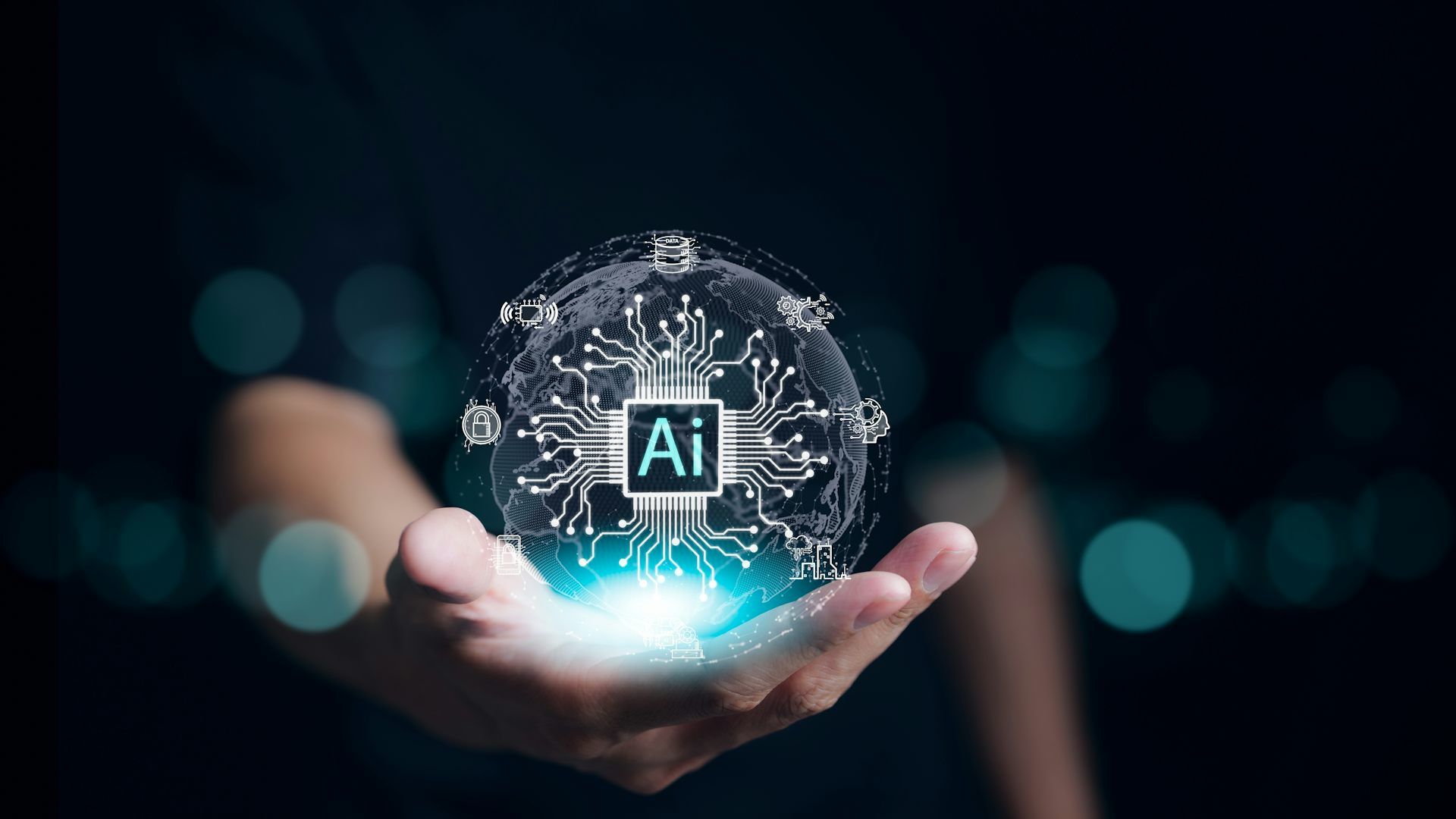We might generate income when you click links to our partners. Learn More.

What is artificial general intelligence (AGI), and why does it matter? As one of the most talked-about topics in technology today, it has sparked a race amongst leading business like OpenAI and Google to turn this advanced principle into truth. Understanding AGI is essential due to the fact that it has the possible to revamp markets, affect our society in extensive methods, and alter the way we engage with innovation. Here's what you require to understand about what it might be able to do, how it may transform markets and fields, and the substantial difficulties facing its advancement.

KEY TAKEAWAYS
• AGI differs from traditional AI in essential ways in that it would have the ability to believe, discover on its own, and adapt to brand-new challenges like human beings unlike conventional AI, which is developed for specialized tasks and operates within a restricted scope. It needs people to upgrade and refine capabilities. (Jump to Section).
• Once it comes true, AGI would be able to make amazing advances in a number of fields, consisting of healthcare, research study, and financing sectors. (Jump to Section).
• Creating AGI is hard due to the research study challenges that consist of technical, ethical, and societal issues. Addressing these challenges is central to preserving the safe and favorable development of this technology. (Jump to Section)
Featured Partners: Expert System Software
Discover more
TABLE OF CONTENTS
What is Artificial General Intelligence (AGI): A Clear Definition.
Understanding AGI vs Traditional AI.
Potential Applications of Artificial General Intelligence.
Challenges in Artificial General Intelligence Research.
3 Introductory AGI Courses to Consider.
Frequently Asked Questions (FAQs).
Bottom Line: Why Knowing What Is Artificial General Intelligence Matters.
What is Artificial General Intelligence (AGI): A Clear Definition
Artificial general intelligence, or AGI, refers to a type of synthetic intelligence (AI) that can analyze, find out, and carry out any cognitive task that a human can do. Unlike today's AI, which is built to handle specific jobs like advising items or processing data, AGI would have the ability to adapt to brand-new obstacles and apply understanding throughout numerous fields. To put it simply, this sophisticated type of AI would believe and reason like a human. While AGI holds terrific possible, it deserves keeping in mind that it is still an idea today, without any totally developed systems readily available yet.
Key Capabilities of Artificial General Intelligence
AGI would have a variety of capabilities that simulate human intellectual functions, so it can perform tasks beyond the narrow focus of the current AI tools in the market. Some key abilities consist of the following:
Human-Like Reasoning: The technology would be able to comprehend and make decisions the way humans do. It would believe critically, solve problems, and come up with services based upon its own experiences and past interactions, comparable to how we use previous understanding to new scenarios.
Solving Unfamiliar Problems: Among AGI's strengths is its possible to deal with brand-new issues. Unlike conventional AI, which is trained to perform particular tasks, AGI would have the capability to manage problems it hasn't been straight trained to resolve. It might determine how to approach a totally brand-new challenge, similar to human beings do when confronted with something we have actually never encountered before.
Self-Learning and Adapting: AGI could tweak its skills and gain from experience, without the need to be by hand upgraded each time. It would observe and examine data, learn from mistakes, and find much better ways to complete tasks gradually. This means AGI might adjust to new scenarios and improve at jobs on its own.
Using Knowledge Across Different Areas: AGI would have the ability to take what it finds out in one area and apply it to other tasks. For instance, if it found out how to solve mathematics problems, it might utilize that understanding to attend to obstacles in other fields, like science or business. The capability to transfer abilities across various locations is something people do naturally and would make the innovation versatile in diverse sectors.
Understanding and Reacting To Emotions: Recognizing and responding to human feelings would also be within AGI's capabilities. This would be essential in settings where comprehending individuals's sensations matters, such as health care, client service, or social circumstances. By responding to emotions properly, AGI would be better geared up to work with humans in a reliable method.
Understanding AGI vs Traditional AI
The table below supplies a snapshot of the major differences between AI and conventional or narrow AI by underscoring their abilities, versatility, and existing status.
AGI would have the capability to think, learn autonomously, and adapt to brand-new obstacles like human beings. However, it is still theoretical and has not been recognized yet. On the other hand, traditional AI is constructed for specific tasks and runs within a fixed scope. It can not adapt to brand-new jobs without human input.
For instance, an AGI might learn to detect medical conditions, then utilize that knowledge to develop individualized treatment plans-and even change its method based on the patient's progress. Additionally, it could apply this problem-solving capability to jobs in totally different fields, such as creating service techniques or advising on ecological preservation. In contrast, conventional AI, like a diagnostic tool, can only evaluate medical information for specific conditions. It can not adapt to other locations or improve on its own.
Potential Applications of Artificial General Intelligence
While AGI isn't here yet, its possible applications cover various fields and hold fantastic guarantee of drastic improvements in numerous sectors. Without being restricted to particular tasks like narrow AI, AGI would be extremely versatile and could use its capabilities to fix multi-disciplinary issues. It might conquer challenges currently beyond the abilities of existing AI applications.
Transforming Healthcare
AGI would change the video game in healthcare by diagnosing complex and unusual diseases with higher accuracy, even in cases where symptoms are uncertain or overlap with several conditions. It could create extremely personalized treatment strategies by studying client history, hereditary details, and real-time health data. In addition, AGI might speed up drug discovery, determining possible treatments in weeks instead of years by processing enormous datasets and running predictive simulations.
Advancing Scientific Research
In clinical research study, AGI would have the ability to simulate experiments, examine elaborate datasets, and produce hypotheses. It might accelerate advancements in quantum physics, genomics, and climate science. By integrating knowledge from different domains, the technology could reveal connections and services that may otherwise go unnoticed by standard AI.
Improving Industry
Organizations in the commercial field might use AGI to increase effectiveness in real-time by managing entire supply chains. It would anticipate and deal with interruptions before they take place. In manufacturing, it could supervise self-governing factories, optimizing production processes while maintaining safety and quality standards. Its ability to adapt to altering situations would make it an invaluable tool in industrial environments.
Enhancing Business Strategy
AGI might improve company decision-making by examining market patterns, consumer behavior, and operational data to find opportunities and dangers. In contrast to narrow AI systems, AGI would innovate services to tough organization issues, such as handling financial unpredictability or forecasting long-lasting market shifts. Its ability to discover from diverse sources would empower organizations to remain competitive.
Redefining Finance
In the financial sector, AGI could increase forecasting precision by finding patterns in large amounts of monetary data, so investors and organizations can make educated decisions. It would likewise be able to identify fraud in real-time by recognizing subtle anomalies that standard AI systems might miss out on. Additionally, AGI might construct more robust monetary models, considering complicated variables and circumstances to alleviate dangers.
Challenges in Artificial General Intelligence Research
Developing AGI is among the most enthusiastic objectives in technology, but it includes many troubles. These difficulties include technical, ethical, and social locations, making AGI development a complex and multi-faceted procedure. Overcoming the following obstacles amounts ensuring safety, promoting ethical requirements, and carefully planning how AGI's intro and usage will impact people, markets, and society as a whole:
Making AGI Truly Flexible: AGI would need to deal with a wide variety of problems and oke.zone adapt to new situations, just like people. Building a system of versatility is incredibly tough since current AI tools are not developed to think or learn at this level of elegance.
Massive Computing Needs: To reproduce human intelligence, AGI would require huge quantities of computing power to process details from diverse sources rapidly. Finding out how to make such systems powerful and effective enough for real-world use is a significant challenge.
Understanding Human Intelligence: We don't fully comprehend how human thinking works, specifically complex aspects like intuition or consciousness. Without this understanding, it's challenging to develop machines that can emulate human-like thinking.
Making AGI Safe and Ethical: AGI could possibly be misused, like to create prejudiced systems or harmful tools like self-governing weapons. Researchers should make certain that AG is developed responsibly and follows rigorous ethical standards. This is a difficult job that requires worldwide collaboration.
Keeping It Under Control: There's a risk AGI might act in ways we do not expect, especially since it would have the capability to find out and alter over time. Ensuring that these systems remain aligned with human worths and are safe to utilize is among the most significant obstacles in AGI research study.
Influence on Jobs and Society: If AGI becomes a reality, it might change jobs or trigger financial inequality by benefitting some groups more than others. Getting ready for these social effects is simply as essential as constructing the innovation itself.
High Costs and Resources: Researching AGI necessitates a lot of cash, time, and expert understanding. Not all companies have these resources, decreasing progress and leaving smaller services out of the race.
3 Introductory AGI Courses to Consider
Familiarizing yourself with AGI can provide you an one-upmanship, whether you want to advance your career in AI or merely desire to remain notified about emerging technologies. The following initial courses can assist you gain a much deeper understanding of what artificial basic intelligence is, so you can strengthen your knowledge about this appealing AI improvement.
Artificial General Intelligence (AGI): An Introductory Course on Udemy
This Udemy course offers a fundamental understanding of AGI, ideal for newbies without any previous experience. The course covers relevant topics, including the structures of AI, the fundamentals of AGI, and the current trends in the field. It also checks out the benefits, risks, and difficulties associated with AGI, equipping you with insights into what the advanced technology can attain. The entire course consists of 15 lectures and can be finished in approximately 45 minutes. Upon conclusion, you will receive a certificate to reinforce your qualifications in the task market. This introductory course costs $24.99.
Intro to Artificial General Intelligence (AGI): Future of AI on Udemy
Udemy's introductory course offers an extensive introduction of AGI for learners with no technical background. It discusses the historical context and foundation of AGI, the distinctions between narrow AI and AGI, and ethical considerations surrounding its advancement. In addition, it attends to future trends in AI and AGI, shedding light on the challenges and chances that lie ahead. Spanning one hour and 46 minutes, the course consists of 39 lectures, on-demand video, and downloadable resources. It also has a useful test at the end to strengthen your understanding. You will be granted a certificate as soon as you complete the course. It is readily available as part of Udemy's premium plans, beginning at $20 per month, or as a separate purchase of $49.99.
Artificial General Intelligence (AGI) on Udemy
This Udemy course brings a clear and succinct intro to the subject, with on-demand videos and 22 lectures. It elaborates on major AGI principles and the function of robotics in AGI development. It likewise takes a look at the ethical, software, and hardware challenges in creating AGI. The course offers quizzes to check your understanding and a certificate of completion. Priced at $44.99, it is produced students at any level, making it accessible and important for anyone who wants to learn more about AGI.
Frequently Asked Questions (FAQs)
Achieving AGI could change markets, improve decision-making, and cause substantial developments in technology. However, it likewise raises concerns about principles, task displacement, and the need for appropriate regulation to ensure it is developed securely and responsibly.
Experts disagree on how far we are from attaining AGI. Sam Altlman of OpenAI thinks in 2025, AI representatives might join the labor force, ultimately paving the way to AGI development. On the other hand, a study of AI researchers puts the mean estimate around 2047. Despite rapid AI improvements, current systems are still limited to narrow tasks and lack the broad, versatile reasoning of humans-so AGI is most likely still decades away.
The idea of AGI fully changing humans is still debated. Even though it's likely that AGI will assist us by taking control of recurring jobs, there is a possibility that it might displace specific tasks. That stated, instead of entirely replacing people, AGI is anticipated to work together with us, dealing with technical responsibilities while we concentrate on tasks that require creativity and compassion. At the end of the day, the impacts of AGI will depend upon how society selects to manage and integrate it.
Bottom Line: Why Knowing What Is Artificial General Intelligence Matters
Understanding synthetic basic intelligence is imperative because this technology could alter industries, fix challenging problems, and transform how we utilize AI. But as we start to establish AGI, we need to carefully deal with several challenges, consisting of technical issues, ethical issues, and its overall effect on society. By discovering AGI's possible and risks, we can pursue making sure it is produced responsibly and utilized in ways that would benefit everyone.









